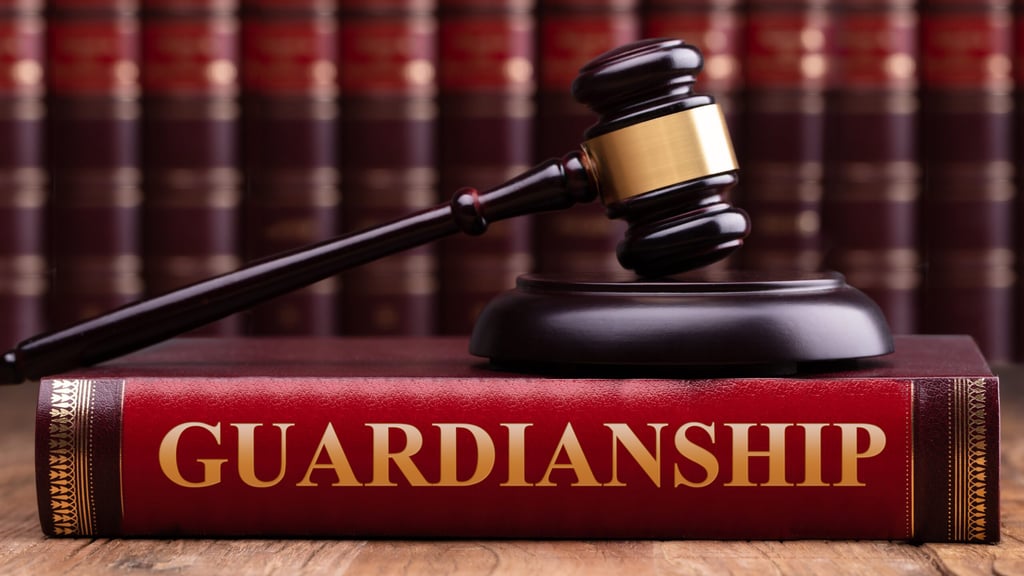Understanding Guardianship: What It Is and When It’s Needed
As loved ones age or face medical challenges, their ability to make important decisions may decline. In cases where an individual is no longer able to manage their own affairs safely or effectively, Guardianship can become a critical legal tool. Understanding what it is, when it’s necessary, and how it differs from a Power of Attorney (POA) can help families make informed decisions with confidence and clarity.
Jose Guanti
2/22/20252 min read


What is Guardianship?
Guardianship is a legal process in which a court appoints a guardian to manage the personal, medical, and financial affairs of an individual who is unable to make decisions for themselves due to mental or physical incapacity. The person under guardianship is often referred to as a ward.
Types of Guardianship:
Guardianship of the Person:
The guardian is responsible for the ward’s personal and medical decisions, including living arrangements, healthcare, and daily care needs.
Guardianship of the Estate (Financial Guardianship):
The guardian manages the ward's finances, property, and legal matters. This includes paying bills, managing assets, and protecting financial interests.
Plenary Guardianship:
Provides full control over both personal and financial decisions. This is typically assigned when the individual is fully incapacitated.
Limited Guardianship:
The guardian has control over specific areas of the ward's life, as determined by the court.
When is Guardianship Needed?
Guardianship is generally considered a last resort when an individual is no longer able to safely manage their own affairs and no other legal arrangements (like Power of Attorney) are in place or effective.
Common Scenarios for Guardianship:
Severe Cognitive Decline: When conditions like Alzheimer’s or dementia progress to the point where decision-making is impaired.
Mental Illness or Disability: In cases where mental health conditions prevent rational decision-making.
Physical Incapacity: When a person’s physical health deteriorates to the point where they cannot manage their own care.
Financial Exploitation or Abuse: If there is evidence of mismanagement or theft of assets by family members or caretakers.
Medical Decisions During Incapacity: If there is no Healthcare Proxy or Medical POA, and critical decisions need to be made.
How is Guardianship Established?
The process of establishing guardianship is court-driven and involves several legal steps:
Filing a Petition: A family member, friend, or concerned party files a petition with the court to request guardianship.
Evaluation and Hearing: The court evaluates medical evidence, testimony, and expert opinions to determine if guardianship is necessary.
Appointment of a Guardian: If approved, the court assigns a guardian with specific responsibilities.
Ongoing Supervision: Guardians are typically required to report to the court on the ward's status and financial management regularly.
The Responsibilities of a Guardian
A guardian is legally responsible for:
Managing Finances: Paying bills, managing investments, and protecting assets.
Overseeing Healthcare: Making medical decisions, scheduling treatments, and ensuring proper care.
Living Arrangements: Deciding where the ward will live, including transitions to assisted living or nursing homes.
Legal Representation: Acting in the ward's best interests in legal matters.
Important Considerations Before Establishing Guardianship
Court Involvement: Unlike a Power of Attorney, guardianship is heavily monitored by the court.
Family Conflicts: The process can sometimes lead to disputes among family members.
Financial Accountability: Guardians must maintain detailed records and may be subject to audits.
Loss of Independence for the Ward: The individual loses their legal right to make decisions independently.
Choosing the Right Guardian:
It’s crucial to select someone who is trustworthy, financially responsible, and genuinely committed to the well-being of the individual. In some cases, a professional guardian or fiduciary may be appointed if there is no suitable family member.
Need Guidance with Guardianship Decisions?
Understanding guardianship and its implications can be overwhelming. If you’re considering this step for a loved one, let’s discuss the best way forward to ensure their safety, dignity, and well-being.
Call me today: 561.971.9142
I strongly advise seeking proper education and guidance from certified professionals to ensure that all decisions are informed and secure.
